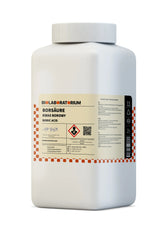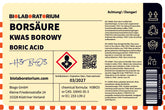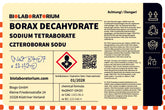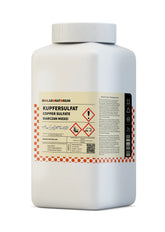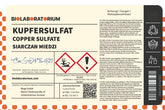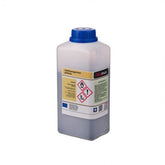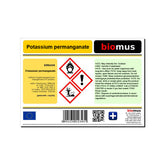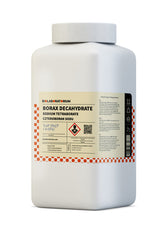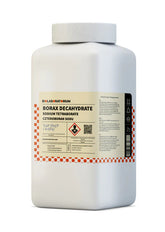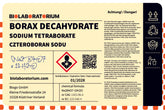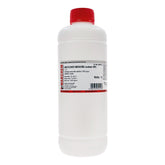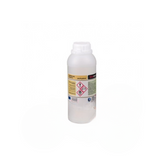Iron chloride: The key to technical chemistry
Iron chloride, also known as iron(III) chloride, is a versatile chemical compound that plays a crucial role in a variety of industries and applications. As one of the most important key compounds in technical chemistry, iron chloride offers a wide range of uses, from water treatment to the production of specialty chemicals.
Properties and structure of iron chloride
Iron chloride is a crystalline, yellowish-brown salt that is soluble in water. The chemical formula is FeCl3, which means it consists of one iron atom and three chlorine atoms. This structure gives iron chloride unique properties that make it such a versatile material.
On the one hand, iron chloride is a strong oxidizing agent capable of oxidizing other substances and thus initiating chemical reactions. Furthermore, it is an effective coagulant used in water treatment to remove suspended solids and impurities from water.
Production of iron chloride
Iron chloride is industrially produced by the reaction of iron with chlorine gas. This process can occur either by direct chlorination of iron or by dissolving iron in hydrochloric acid. The resulting iron chloride can then be provided in various forms, such as granulate or solution, for different applications.
Applications of iron chloride
The versatile properties of iron chloride make it an indispensable component in numerous industrial sectors. Some of the most important areas of application are:
Water treatment
Iron chloride is an extremely effective coagulant in drinking water and wastewater treatment. It reacts with impurities dissolved in water and forms flocs that can then be easily separated. In this way, suspended solids, heavy metals, and organic substances can be removed from the water.
Industrial applications
In industry, iron chloride has a wide range of uses. It serves as an oxidizing agent, pickling agent, and dye pigment. Additionally, it is used in metal processing, textile manufacturing, and paper production.
Laboratory applications
In the chemical laboratory, iron chloride is an important reagent for various analyses and syntheses. For example, it is used to identify ions, produce dyes, and as a catalyst in organic reactions.
Medical applications
Iron chloride is also used in medicine. It is applied as an astringent in wound treatment and can be used to stop bleeding.
Environmental aspects and safety
Although iron chloride is a useful and versatile product, caution must be exercised in its handling and disposal. Iron chloride is corrosive and can cause injuries upon contact with skin and eyes. Therefore, it is important to wear appropriate protective equipment when using it and to comply with applicable safety regulations.
Furthermore, iron chloride must be disposed of properly, as its oxidation properties and solubility in water can pose a potential environmental risk. Proper disposal and treatment are therefore essential to prevent harm to humans and the environment.
Conclusion
Iron chloride is a key compound in industrial chemistry, playing a crucial role in a variety of industries and applications. From water treatment to the production of specialty chemicals, iron chloride offers a wide range of uses. However, safety and environmental aspects must always be considered to ensure responsible handling of this versatile chemical compound.

